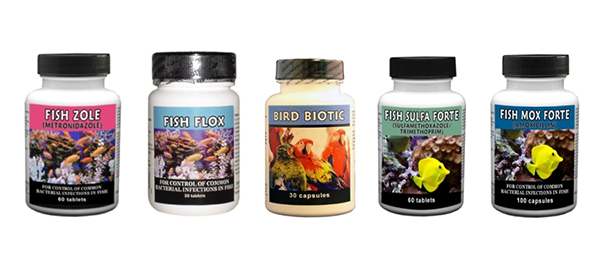In light of recent events with the increasingly turbulent world politics, more and more people are concerned about a large-scale catastrophe or cataclysmic natural disaster. Should such an event occur, it’s essential to be prepared and suitably equipped for all eventualities to be able to provide for our families and their health. Most pain medications, basic first aid and general self-care supplies can be purchased over the counter from drug stores. Stockpiling food, water, and household supplies is relatively easy, however procuring prescription medications including antibiotics is not such a cut-and-dried situation.
Antibiotic compounds treat specific bacterial infections regardless of the species infected, i.e. be it human, canine, bovine or otherwise. The reason doctors and veterinarians use different antibiotics in different species are because some of these medications cause adverse side effects or even toxicity in some species due to interference with various organs as well as the bacteria causing the primary illness. Equally, some antibiotics work well in a range of species though the dose may be different; one such example is doxycycline.
Throughout the developing world, human patients are often treated with veterinary medications for a variety of reasons including expense and availability of human pharmaceuticals. It is illegal practice for anyone, veterinarian or otherwise to dispense any animal medication for human consumption. One of the primary reasons for this law is the potential for abuse of pain medications and anesthetics, particularly narcotics is simply too great to permit such practice. People actually using veterinary medications however, is not uncommon, particularly among those who work with animals. Many companion animal medications are generic equivalents of human drugs; however, your veterinarian is not legally permitted to dispense these for your consumption, not even for an emergency situation. Another reason for these regulations is manufacturing hygiene. The United States Food and Drug Administration doesn’t require the same stringent guidelines regarding production hygiene for livestock antibiotics or feed additive medications as for human medicines. Impurities that could pose a health concern for humans but not for their intended animal consumers may be present in these compounds.
Related: 14 Dog Breeds for Preppers
How To Use Veterinary Drugs
#1. Research is essential if you are considering sourcing an emergency supply of antibiotics, which is why are reading this article. You want to ensure you and your family’s safety and make informed decisions about healthcare in a post-apocalyptic scenario.
#2. You should ensure that the active ingredient is the actual antibiotic despite the brand name.
#3. Dosage is another important consideration, you should compile a dosage chart for the medications you have stocked, not just antibiotics but also any other prescription medications and keep this with the medication for easy access in an emergency situation. Pay close attention to the concentration of active ingredient and look for a product with minimal fillers.
#4. Be cautious when sourcing medication, for example, the quality of products sold by some internet pharmacy companies may be sub-par or even counterfeit. Look for the USP Verified Pharmaceutical Ingredient Marks on medications. These are special coding used to identify medication, e.g. USP Pharmaceutical Grade Tetracycline on a tablet means that the concentration of the active antibiotic (tetracycline) is verified by the FDA.
#5. Self-medication with prescription antibiotics without any physician’s input in our current civilization is ill-advised as you increase the risk of selecting for multidrug-resistant strains of bacteria. You should follow your doctor’s directions for taking medications, to minimize the development of resistance in bacteria thus reducing the efficacy of our medications in the event of a disaster. The information in this article should only be used in the event of a crisis when prescriptions are not available.
Related: Potassium Permanganate: Why You Need It in Your Survival Kit?
Classes of Antibiotics
Another concern about self-medication is the diagnosis and subsequent treatment. You may not have the correct diagnosis; thus, you may not select the correct antibiotic or dosage. Using the incorrect medication or dose could put yours or another person’s health or life at risk.
Penicillins
There are a number of penicillin variants including amoxicillin, methicillin and flucloxacillin; also, combinations such as amoxicillin/clavulanate and ampicillin/sulbactam are also available. Penicillin was introduced in the 1940s and is used to treat a wide range of common ear/nose/throat, skin and respiratory infections including strep throat, Salmonella infections and pneumonia. Some people are deathly allergic to penicillin based antibiotics and can have anaphylactic reactions so use with caution.
Fluoroquinolones
Do not use these antibiotics as a first choice for any infection! Use with caution in children!
Ciprofloxacin, levofloxacin, moxifloxacin and ofloxacin are some of the antibiotics in this class and are used to treat urinary tract infections, pneumonia and gonorrhea. A number of these drugs have been withdrawn from the market due to toxicities and microbial resistance is on the increase. Side effects are uncommon but can be severe including seizures, weakness, nausea and tendon damage even with short term use.
Cephalosporins
Do not use these antibiotics as a first choice for any infection!
There are five generations of this class of antibiotic available, earlier generations have good action against streptococcal and staphylococcal infections while the newest generation treats multidrug resistant bacteria including pseudomonal infections. Adverse responses include allergic reactions, gastrointestinal upset including nausea and diarrhea. These antibiotics can be used to treat gonorrhea, severe skin or middle ear infections and genito-urinary tract infections.
Macrolides
These antibiotics are good alternatives for people allergic to penicillins and cephalosporins.
Antibiotics in this class include azithromycin, clarithromycin, erythromycin and spiramycin. These are useful to treat respiratory infections such as whooping cough, Lyme disease, mouth infections and syphilis. Side effects include gastrointestinal upsets, liver problems and sight problems.
Aminoglycosides
This group includes amikacin, gentamicin, neomycin and streptomycin. These antibiotics are useful in treating infections caused by Escherichia coli, Klebsiella and Pseudomonas aeruginosa and tularemia. These antibiotics are effective to treat severe bone and soft tissue infections. These are not effective when taken by mouth, but injectable and topical forms of these drugs are useful, including treating gonorrhea and tuberculosis. Side effects including hearing and kidney damage.
Sulfonamides
Possibly the best known member of this class is silver sulfadiazine which is topically used for burns and skin irritations. Others members include trimethoprim-sulfamethoxazole and sulfadimethoxine and are used to treat urinary tract and eye infections. Side effects include kidney problems, nausea and sunlight sensitivity, symptoms of allergies to these include skin rashes.
Some helpful links are listed below:
The American Academy of Family Physicians‘ website is a good resource for educating yourself on health matters including quality cost-effective health care. This website includes information on interactions between medications, side effects and appropriate dosing.
You can also access a clinical guide with information about commonly available antibiotics and dosing information for both adults and children.
The best advice I can give you for preparing for a SHTF situation is to be scrupulous with your research and selecting your sources for antibiotics. Choose only reputable or peer reviewed sources for your information and be careful when selecting veterinary medications for your cupboard and always keep medications well away from children. Regularly check your medication inventory and if anything is past its expiration date discard in a safe manner and replace with a new version.
You may also like:
 The Best Natural Painkiller that Grows in Your Backyard
The Best Natural Painkiller that Grows in Your Backyard
Do You Make These Fatal Mistakes In A Crisis? (Video)












I was once given 750Mg of levofloxacin for a UTI by the Hospital Emergency room nurse, The day I took the last pill, I started bleeding from my Rectum, I wound up in the Hospital for a week with a tear in my Colin, I also had a partially torn Achilles Tendon from the same meds about 6 months later.I will never take that stuff again!
Bill: is that what they told you or you are thinking that all by yourself? I can see the bleeding as too much aspirin can do that, but your tendon? I know you said, levofloxacin, and not aspirin just making your cause using aspirin story. Did you read the side effects from that product? I normally do that, when a doctor prescribes anything for me. I will go on internet and see what it says.
Bill. YOU ARE CORRECT! WOW, it listed some common side effects and YOURS IS IN THE RARE effect, but it did list inflammation of TENDON. So,many side effects, why bother taking it at all? JUST WOW!
Rare side effects of levofloxacin:
Abnormal Heart RhythmSevere
Abnormal High And Or Low Blood SugarSevere
Abnormal Liver Function TestsSevere
Abnormal Sensations Of The SkinSevere
Acute Liver FailureSevere
Acute Pustular Eruptions On SkinSevere
Acute Renal FailureSevere
Allergic Reaction Causing Serum SicknessSevere
Clostridium Difficile InfectionSevere
ConfusedSevere
Decreased White Blood CellsSevere
Detachment Of The Retina Of The EyeSevere
Disorder Of The BrainSevere
Drug Or Chemical-Induced Sensitivity To SunlightSevere
Erythema MultiformeSevere
Feeling WeakSevere
Giant HivesSevere
HallucinationSevere
Having Thoughts Of SuicideSevere
Hearing LossSevere
Hemolytic AnemiaSevere
Hepatitis Caused By DrugsSevere
High Pressure Within The SkullSevere
Hypersensitivity Drug ReactionSevere
Inflammation In Lungs Caused By Allergic ReactionSevere
Inflammation Of The Liver With Stoppage Of Bile FlowSevere
**Inflammation Of The Tendon Severe**
Inflammation Of The Uvea Of The Eye Severe
Interstitial Nephritis Severe
Life Threatening Allergic Reaction Severe
Low Blood Counts Due To Bone Marrow FailureSevere
Low Blood Sugar Severe
Multiple Organ Failure Severe
Nerve Function Blockage That Affects Normal Muscle Action Severe
Numbness Severe
Pancreatitis Severe
Peripheral Neuropathy Severe
Prolonged QT Interval On EKG Severe
Psychosis Caused By A Drug Severe
Rash Severe
Redness Of Skin Severe
Rhabdomyolysis Severe
** Rupture Of A Tendon Severe
** Rupture Of A Tendon In The Shoulder Area Severe
** Rupture Of Tendons That Extend The Hand And Wrist Severe
Rupture Of Tendons That Flex The Hand And Wrist Severe
Rupture Of The Tendon In The Back Of The Heel Severe
SeizuresSevere
Severe Diarrhea Severe
Stevens-Johnson Syndrome Severe
Thrombotic Thrombocytopenic Purpura Severe
Toxic Epidermal Necrolysis Severe
Vasculitis Severe
Very Rapid Heartbeat – Torsades De Pointes Severe
Yellowing Of Skin Or Eyes From Liver Problems Severe
Abnormal Manner Of WalkingLess Severe
Acquired Decrease Of All Cells In The BloodLess Severe
AnemiaLess Severe
ArthritisLess Severe
Blind Spot In The EyeLess Severe
Burning StomachLess Severe
Decreased Blood PlateletsLess Severe
Deficiency Of Granulocytes A Type Of White Blood CellLess Severe
DepressionLess Severe
Double VisionLess Severe
Fast HeartbeatLess Severe
Feeling AnxiousLess Severe
Feeling RestlessLess Severe
FeverLess Severe
GasLess Severe
Heart Throbbing Or PoundingLess Severe
High Blood SugarLess Severe
HivesLess Severe
Inflammation Of The Lining Of The Stomach And IntestinesLess Severe
Inflammation Or Infection Of VaginaLess Severe
Involuntary QuiveringLess Severe
ItchingLess Severe
Joint PainLess Severe
Loss Of AppetiteLess Severe
Mental Disorder Resulting From Poisonous AgentsLess Severe
Muscle PainLess Severe
Muscle WeaknessLess Severe
NightmaresLess Severe
NosebleedLess Severe
Numbness And TinglingLess Severe
Painful, Red Or Swollen TongueLess Severe
Problems With EyesightLess Severe
Ringing In The EarsLess Severe
The Appearance Of Crystals In The UrineLess Severe
Widening Of Blood VesselsLess Severe
I have had Cipro prescribed for me a few times over the years. I didn’t know what it was until after I filled it, and I refused to take it every time. One time I called the office up and told them it gave me a rash, so they would give me something else (it worked)! check out the book Bitter Pills which is about this class of antibiotics. I am SO glad I read that book before I ever took one of these! OP, I was going to come on here and comment that these things ARE caused by them, but I saw you had already found out! Ya gotta really love Google (but only sometimes)!!!!
Cipro is some rough stuff. I had to take it once for a massive kidney infection. No other antibiotic was strong enough for it. I have one bad kidney so a kidney infection shows up differently in me so much so that one doctor insisted that I had Chronic Fatigue Syndrome. He also thought that my joint pain was gout when it really was Rheumatoid Arthritis! New doctor found all the problems and got me on the road to being well again, or as much as I can with RA. Now I take a course dandelion root a couple of times a year to help keep the old kidneys humming along and have recently discovered that the bee pollen I was taking for the nutrients is helping the RA. My Rheumatologist even approves of the bee pollen after seeing the results from it.
Yea I really want this crap in my body. Good grief!!
Aren’t you just TOO thrilled that the FDA is looking out for us? And the EPA? You know, the ones where if anything gets over the threshhold limit, they just raise the limit? I think the two of them are blood brothers! (OUR blood!)
Glad you figured out that the levofloxacin was dangerous and decided to never take that type of med. again! The thing is Cipro and many other drugs are in the same family of Flouride-based drugs. They all do the same nasty stuff to a human body, too!
I highly recommend Vetericyn Plus hydro gel, it’s a spray and I have had amazing results using this product on injured animals large and small. It is great on wounds and stops itching. No need for a Rx, it’s sold at Petco, Sutherlands.
Also available at most farm/feed stores, such as your local Co-op or places like Tractor Supply. Good stuff!
i agree! i have used veterycin gel and liquid for several years on myself and the pets for cuts, wounds etc. when my cat gets ringworm almost every year i apply the gel and it heals quickly. it actually reduces pain as well. another cat had a bad animal bite on his back and i sprayed it with willards water then applied the veterycin gel which healed it up. read up on willards water also great stuff to keep around for all sorts of things.
We’ve used Fish Mox Forte in place of amoxicillin on several occasions. Can’t tell the difference except you don’t need an Rx for Fish Mox Forte.
What dosage please
500mg x 2 daily or 3x daily
Agree. I have used fish mox forte on myself and my dogs for years now with no ill effects. For myself, I dose 2x500mg initial dose, then 1 500mg capsule morning and night for 7-10 days.
Absolutely! Fish Mox Forte IS Amoxicillin!
Who is the author of the book “Bitter Pills”?
Stephen Fried
It’s a book he wrote about what he and his wife went thru after she took one of that class of antibiotics. I forget the name exactly, so going to make it up: ”oxyfluoroquinolones” or some such! I went to a new nutritionist the other day (alternative) and HE told me that those antibiotics are fluoride based! so that pretty much explains it! That book was a life changer for me! (As was the book Excitotoxins, by Russell Blaylock!) (Also, do NOT use fabric softener sheets! They are pretty much made up of total carcinogen chemicals!)
I read that also and bought woolseys from Amazon and will never go back to dryer sheets.
Woolseys are said to do the job for about 4 years if used daily.
I bought generic and even at that price, I will still save money using these wool balls in the dryer.
I use two for a month, then change to another two for a couple months so they will wear the same amount.
I have tried those! They get tangled up in my clothes, and then they fall out and bounce into the cats’ litter box! They never seem to miss! What I had read, and I think it was by Deborah Dad in her book, was that they use 9 carcinogens in the sheets, and they have NEVER been tested together to see if the different components used together make it even more of a risk! That decided me right there! I don’t know how good the wool balls work, but I’m using them anyway! One thing they do NOT do is take out static. I don’t know if they are supposed to or not, but I still have tons of static in my dryer loads! I guess you also read that air fresheners are also loaded with carginogens? I quit using those too. I have noticed too that even when those smell good, they still do not have a natural smell, like something that has essential oils in it (which you have to watch out for if you have cats)!
I have multitudes–much electricicty in my body–I can not even shampoo without a form of conditioner whether it be vinegar or other…these woolsey balls are great for my shock factor.
I had two pieces of clothing–one a set of pjs–that couldn’t be rid of the shock factor–I threw both away.
I just last hour used ‘Static Guard’ on Gene’s truck seats…yes, even in the summer!!!
I tell you, I have a large amount of shock factor in my body and ballseys in the dryer work for me.
I wonder if it matters how many you use at at time? I have 4 in there all the time, and I can hardly PEEL my clothes apart, and I always get shocked and it HURTS! Or maybe I’ve used them for too long? It just seemed to me like they should last forever. I’ve had them in there for a while! I feel for ya with that shock thing. It can HURT!
I use white vinegar in my dryer. I just spray the drum, add the clothes, and dry. Sometimes I wet a cloth with vinegar and just throw that in like a dryer sheet, especially in winter when static seems to be worse. White vinegar can also be added to the fabric softener dispenser in the washer for a little extra softening. Using home-made detergent also seems to cut down on static versus the commercially-made stuff.
Thanks Homesteader, I’ll try it! Something else we can use vinegar for, cool!
I also use white vinegar in the dishwasher’s jet dry dispenser. Just one more way to get chemicals out of our lives.
I use the wonder ball for the washer (amazing no soap use gets everything clean once you get all the old residue out). They also have drier balls with spikes on them. I dont have static anymore.
The wool dryer balls work. I had 3 at first but was told they do better if you have at least 6. Clothes will collect static cling if they aren’t natural material: cotton, hemp, bamboo, etc. ANY plastic based clothing WILL give static cling!!! Polyester, etc, which is almost everything else.
If you are always getting the static, try drying the clothing a bit less, as they may be TOO dry, or use essential oils on the dryer balls, to give a bit of scent (a VERY little bit of scent) and help with overdrying.
Yes, my dryer balls sometimes hide in sleeves or legs of clothing, but I just try to put them in the laundry basket and pull them out later.
So for static: use natural fibers, not plastic ones, dry clothing for less time on lower heat setting, use essential oils on the balls. These will all help.
Make sure, too that your dryer balls are made from real WOOL, not anything else, as that may contribute to static.
Unbelievable I already do not like to take any drug they shold not put any drug out there that does or can do that much damage
It’s all about the money and keeping us sick. They’re not interested in making us healthy. There’s no money in that.
Amen to that statement. Can you believe the number of iron lungs they would have sold if they could have had Dr. Jonas Salk in their pocket. I believe that polio was the last disease I CAN REMEMBER BEING CURED. No more iron lungs or shots or pills to be sold. Now we pay for flu shots every year, pneumonia shots and every thing else you can think of.
I have a list in with the antibiotics gathered from VA, and fish antibiotics I bought in with the storage in the cool closet.
It lists name, usages, dosage for children and adults.
I also have these things in a catalogue I maintain of survival stuff. Never have too many notes, do we??
My husband and I just looked to see what we have and I’m satisfied we will be cared for if TSHTF.
I did not buy cipro and tetracycline though.
Good idea to keep hard copies of your information in notebooks. If something ever happened to our electronics and power grid, our info there would be toast! I’d much rather have printed copies and actual books!
Hi there,
Is the list that you have a self made list or one that I would be able to buy at a pet store.? I would like to have a list before I begin buying the components that I will need to put in our survival bags.
Thanks,
Suzanne
“The best advice I can give you for preparing for a SHTF situation is to be scrupulous with your research and selecting your sources for antibiotics. Choose only reputable or peer reviewed sources for your informa- tion . . .”
That, ladies and gentlemen is the most important advice in the article. Don’t take medical advice, no matter how well-meaning, from Bill Smith or Sally Jones or any other unidentified poster on the internet, The condition they talk about may be unique to them. They also may not be providing you with their complete history including other conditions they have have or had that affect the treatment they are describing. Too many unknown variables on the internet.
There are several books that use herbal remedies rather than antibiotics. One is “Herbal Antivirals” by Buhner, also by Buhner, “Herbal Antibiotics”. I have both.
There are other books that have the same topic, these are just the two I have at hand to list.
I am not advocating you NEVER take Rx antibiotics, but many herbs can and do cure almost all health issues unless you have something that requires hospitalization.
Remember, too, most antibiotics are ‘bug’ resistant, so that means you may just have to take them AGAIN, and again, and again…as they won’t completely take care of the issue. And usually WHEN it comes back it comes back stronger and harder to get rid of.
And, why should they? Doctors and pharmaceuticals won’t make much money if all of the Rx CURED things, now would they?
Get a Nurse’s Drug Guide Book, preferably a newer one (they come out every year). Newer versions have the new meds in them. They list appropriate dosages and contraindications. I use Thomas Labs for antibiotics. I only use them when I know for sure what type of infection I have and the appropriate drug for it, and I only use them as a last resort if the illness lingers too long (ie pesky sinus infections that get so bad my teeth hurt).
Have you ever tried spraying colloidal silver up your nose? It kills just about everything. It might help your sinus infections too. I wouldn’t spray too much though because it might dry out the sinuses causing more problems but, at least, it might knock down the infection somewhat.
My husband had chronic sinusitis for years which would also result in upper respiratory infection. Took every prescription you can think of then, we discovered colloidal silver. Started using as nose spray, throat spray and voila, stopped all infections in matter of days. Source Naturals carries { Wellness Colloidal Silver Throat spray). Get empty clean nose spray bottle and pour part of throat spray in to use as nose spray. Also works for colds, allergies etc. Mouths sore, gargle, small amount on sore few minutes, shortens healing time.
When my hubby got a very NASTY sinus infecton post COVID, I added nano Colloidal Silver to his homemade nasal spray. It did not remove the sinus infection, but it did seem to help him some.
My late dog was prescribed Prednisone, an oral corticosteroid, for joint issues. I myself recently had a HUGE problem walking, getting out of bed, even getting upright from a chair due to rheumatoid arthritis swelling in my knee. I took my late dog’s Prednisone and the next morning I was swelling-free and overjoyed!
I have looked up the routine dosage/course of the drug and will treat myself accordingly. And next I will take my current dog in to complain of her painful joints…
Amazingly my dog weighed ten or so pounds and I of course weigh so much more. But the dose was spot on for me.
*Prednisone is of course also prescribed to humans, for anyone who’s weirded out by taking “dog drugs” :’)
No, it’s not weird taking “dog drugs”. In fact, most vets will tell people to get their dog’s meds at the pharmacy since it is cheaper than from the vet because the pharmacy has generics, vets don’t. Be careful with the Prednisone. If you don’t have enough folic acid in your system, the Prednisone can become toxic. You need to let your own doctor know that you are taking this med. Steroids don’t always work and play well other medications, even over-the-counter ones. I’ve been down that road and it wasn’t fun.
Prednisone is often overprescribed by human docs, but has HORRENDOUS (albeit non-lethal) side effects.
Stuff like explosive weight gain at ~1 lb / day and horrible shakes like a withdrawing junkie is pretty common stuff.
Avoid when possible, use at your own risk.
Scaaaary…sensationalist nonsense, and way too much cut and paste anout gonorrhea (from sites about self-medicating for the clinically ashamed, I guess?)
Furthermore, a lot of vet meds are made by US, UK, or German companies in first-class first-world facilities that have much BETTER quality control and safety than the crappy generic India meds your insurance company is willing to pay for.
Especially when it comes to equine (horse) meds, since horses are big $$$ business, and owners are far richer and more litigious than your average slum dweller lining up at the CVS.
Just get the active ingredient right, print out a bunch of info from somewhere reputable like a Merck manual, and keep the printout with it in case whatever disaster drives you to horse meds knocks out your electricity, broadband, and local cell tower.
PS the main uses for antibiotics in a disaster scenario are open wound injuries (get & use whatever you tolerated well when a doctor or dentist gave you antibiotics after a surgery, ER visit for an injury with stitiches, or dental extraction), pneumonia, and diarrhea-causing infections. Last one is trickiest because a different class of antibiotics is usually needed (something like nifuroxazide , but afaik that’s easy to buy in a 3rd world human pharmacy, not so much from an american veterinary supply).
I’m trying to find a way to purchase Thyro-Tabs (dogs) or Thyro-L (horses). It’s all just levothyroxine sodium and a HELLUVA lot cheaper than dropping a couple hundred bucks a couple of times a year just to get the prescription and then dropping over double for the actual meds in 30 day supplies. It’s frickin thyroid medication, it’s not like it’s cocaine lol.
Anyone know of a veterinarian willing to write a prescription for my “dog” online lol?
Try Nature -Throid, much less expensive than others. It is natural, by prescription only and is FDA approved. The company has a safe track record of over 80 years and has never had recalls etc. My prescription runs $75.00 for 100 pills from Sam’s Club for over 3 month supply.
I’ve recently heard that the same medication for human anaphylactic shock is used by vets and that ours costs $1.4k for an epi-pen and a vet’s cost $30. Thoughts?